This article was co-authored by Joel Warsh, MD and by wikiHow staff writer, Janice Tieperman. Dr. Joel Warsh is a board certified Pediatrician and the Owner & Founder of Integrative Pediatrics and Medicine in Los Angeles, California. With over a decade of experience, Dr. Warsh specializes in holistic and integrative medicine. He holds a Bachelor’s degree in Kinesiology and Health Sciences, a Master’s degree in Epidemiology and Community Health, and a Doctor of Medicine (MD) from Thomas Jefferson Medical College, where he was elected president of the Jefferson Pediatric Society. Dr. Warsh then completed his Pediatric Residency at Children’s Hospital of Los Angeles (CHLA), where he received the George Donnell Society Research Fellow.
There are 8 references cited in this article, which can be found at the bottom of the page.
This article has been viewed 623,488 times.
Believe it or not, acne isn’t just an annoying side effect of puberty and beyond. If you notice acne on your baby’s skin, there’s no need to panic—in fact, around 20% of babies develop acne at some point. This type of acne typically appears before the baby is 6 weeks old, and usually fades away within a few months.[1] If you’d like to try speeding up the healing process a little bit, change up your baby’s skincare and bathing routine to see if you notice a difference! If the acne flares up past the 6-week mark, reach out to a doctor for more specific guidance.[2]
Steps
Washing the Baby’s Face
-
1Soak a clean cloth with warm water and gentle soap. Wring out any of the extra water and massage a tiny amount of baby soap into the material.[3] Ideally, check that the water is around 70 °F (21 °C), which is a perfect temperature for your baby’s sensitive skin.[4]
- Cotton balls are great substitutes for washcloths.
- Look for soaps with a “baby” label on them. This way, you can be sure that they’ll be gentle on your child’s delicate skin. You can likely find these in stores that sell baby supplies.
-
2Wipe the baby’s face to keep it clean. With gentle care, wash off your baby’s face, which will help keep their skin really clean. If your child has bad acne, wash their face once a day in order to keep their skin in great condition.[5]Advertisement
-
3Pat the child’s skin dry with a clean, soft cloth. Lightly blot away any leftover soapy water, so your baby’s face is totally dry. If you wash each day, you may see some improvement in the baby’s acne.[6]
Avoiding Bad Habits and Products
-
1Don’t touch or scrub the acne. Similar to teen or adult acne, picking and scrubbing the problem area isn’t going to accomplish anything productive. Even if the acne looks small, don’t try to rub it away—you may end up making it worse. Instead, focus on washing the skin each day and leaving the acne alone at any other time.[7]
-
2Avoid treating the acne with medication unless a doctor tells you to. Acne medication can do wonders for teens and adults, but this unfortunately isn’t the case for young children. Talk to a pediatrician or dermatologist and see if there are any creams or medications you can use to treat the acne. Unless you get direct permission from a medical professional, it’s best to leave the acne alone.[8]
- Acne medications are designed for fully developed skin, and may hurt a baby’s sensitive skin.
-
3Toss out any oily products from your skincare routine. Check and see if there are any creams, ointments, lotions, or other skincare products that you’re using on yourself. Although the products may be good for your own skin, you don’t want the greasy and oily products transferring to your baby’s skin.[9]
- For instance, avoid hand lotions or creams that make your skin really oily and greasy.
Identifying Baby Acne
-
1Attribute small bumps on your child’s skin as baby acne. Usually, this type of acne will appear about 2 weeks or so after your child is born, and will disappear on its own in several months. Like teen or adult acne, you can usually find baby acne around the forehead, cheeks, and nose.[10]
- Like regular acne, baby acne is red and white.
- You may also notice small, white bumps on your child’s face. These are known as milia, and are no cause for concern.[11]
-
2Recognize sections of red, itchy skin as eczema. Believe it or not, babies get eczema pretty quickly. If your child’s skin looks really dry and red, it may not be baby acne after all. If you suspect that your child has eczema, try to keep them away from irritants like soap powder, cigarette smoke, or spray-on products.[12]
- Nylon and wool may be soft, but they can be really scratchy on a baby’s skin. Instead, look for cotton-based clothing instead.
-
3Identify patchy, bumpy, and red sections of skin as a rash. Babies can get a variety of different rashes, several of which appear with bumps or acne. Many rashes tend to go away on their own, but you may want to consult a doctor if a rash hangs around for several weeks or months.[13]
- A doctor can help you identify the specific rash you’re dealing with, and may have advice on how to treat it.
-
4Consult a doctor for a more specific diagnosis. Baby acne can be its own issue, but it can also be a sign of a more serious condition, like a skin infection. Talk to a medical professional so you can know for sure.[14]
- Be sure to mention when you first noticed the rash, and how long it’s been present.
- Start feeding your child breast milk if you can.[15]
Expert Q&A
-
QuestionDoes baby acne go away on its own?
 Joel Warsh, MDDr. Joel Warsh is a board certified Pediatrician and the Owner & Founder of Integrative Pediatrics and Medicine in Los Angeles, California. With over a decade of experience, Dr. Warsh specializes in holistic and integrative medicine. He holds a Bachelor’s degree in Kinesiology and Health Sciences, a Master’s degree in Epidemiology and Community Health, and a Doctor of Medicine (MD) from Thomas Jefferson Medical College, where he was elected president of the Jefferson Pediatric Society. Dr. Warsh then completed his Pediatric Residency at Children’s Hospital of Los Angeles (CHLA), where he received the George Donnell Society Research Fellow.
Joel Warsh, MDDr. Joel Warsh is a board certified Pediatrician and the Owner & Founder of Integrative Pediatrics and Medicine in Los Angeles, California. With over a decade of experience, Dr. Warsh specializes in holistic and integrative medicine. He holds a Bachelor’s degree in Kinesiology and Health Sciences, a Master’s degree in Epidemiology and Community Health, and a Doctor of Medicine (MD) from Thomas Jefferson Medical College, where he was elected president of the Jefferson Pediatric Society. Dr. Warsh then completed his Pediatric Residency at Children’s Hospital of Los Angeles (CHLA), where he received the George Donnell Society Research Fellow.
Board Certified Pediatrician Yes, it does! Feeding your baby breast milk may be a good first step, but you don't really have to do much overall—the acne usually goes away on its own.
Yes, it does! Feeding your baby breast milk may be a good first step, but you don't really have to do much overall—the acne usually goes away on its own. -
QuestionMy grandchild has bumps all over her body, hands, and feet; what can I use to get rid of them?
 Erika White WilliamsCommunity AnswerTake the child to the doctor so she can be properly diagnosed. Avoid using detergents with fragrance or harsh ingredients. Children have sensitive skin, and often cannot tolerate regular detergents.
Erika White WilliamsCommunity AnswerTake the child to the doctor so she can be properly diagnosed. Avoid using detergents with fragrance or harsh ingredients. Children have sensitive skin, and often cannot tolerate regular detergents. -
QuestionMy child is 3 weeks old, and her face is continuing to break out badly. What do I do?
 FaithtychCommunity AnswerThe milk may have too much protein in it.
FaithtychCommunity AnswerThe milk may have too much protein in it.
Things You’ll Need
Washing the Baby’s Face
- Warm water
- Clean cloths
- Baby soap
- Cotton balls (optional)
References
- ↑ Joel Warsh, MD. Board Certified Pediatrician. Expert Interview. 20 July 2021.
- ↑ https://www.aad.org/public/diseases/acne/really-acne/baby-acne
- ↑ https://www.mayoclinic.org/diseases-conditions/baby-acne/diagnosis-treatment/drc-20369885
- ↑ https://www.stanfordchildrens.org/en/topic/default?id=bathing-and-skin-care-for-the-newborn-90-P02628
- ↑ https://www.mayoclinic.org/diseases-conditions/baby-acne/diagnosis-treatment/drc-20369885
- ↑ https://www.mayoclinic.org/diseases-conditions/baby-acne/diagnosis-treatment/drc-20369885
- ↑ https://www.aad.org/public/diseases/acne/really-acne/baby-acne
- ↑ https://www.mayoclinic.org/diseases-conditions/baby-acne/diagnosis-treatment/drc-20369885
- ↑ https://www.aad.org/public/diseases/acne/really-acne/baby-acne
- ↑ https://www.mayoclinic.org/diseases-conditions/baby-acne/symptoms-causes/syc-20369880
- ↑ https://patient.info/skin-conditions/milia-leaflet
- ↑ https://www.nhs.uk/conditions/pregnancy-and-baby/eczema-in-children/
- ↑ https://www.nhs.uk/conditions/rashes-babies-and-children/
- ↑ https://www.aad.org/public/diseases/acne/really-acne/baby-acne
- ↑ Joel Warsh, MD. Board Certified Pediatrician. Expert Interview. 20 July 2021.
- ↑ https://www.mayoclinic.org/diseases-conditions/baby-acne/diagnosis-treatment/drc-20369885
About This Article
To get rid of baby acne, use a soft sponge or terry washcloth to wash your baby’s face once a day with mild soap and warm water. Use soap formulated just for babies if you can, since it’s made especially for your baby’s sensitive skin. Then, pat your baby’s skin dry with a terry bath towel. Be careful not to scrub your baby’s face when you wash or dry it, since that can irritate their skin and cause more acne. Also, avoid putting lotions or oils on your baby’s face, even if their skin looks dry, because those can irritate your baby’s skin, too. To learn how long to give your baby’s acne to clear up and when you might want to seek medical care, read on!

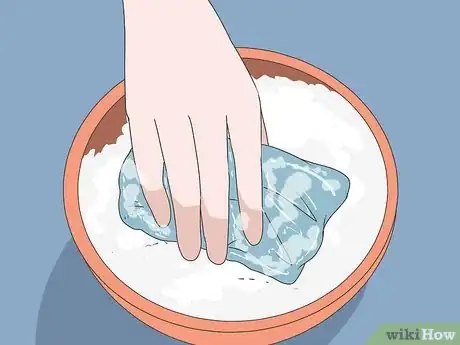
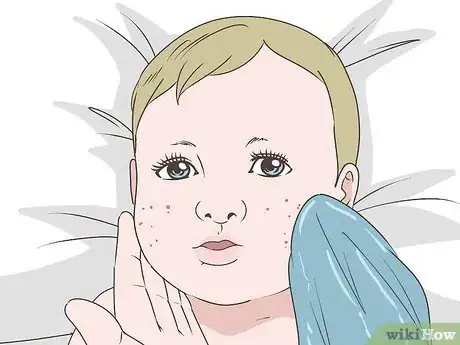
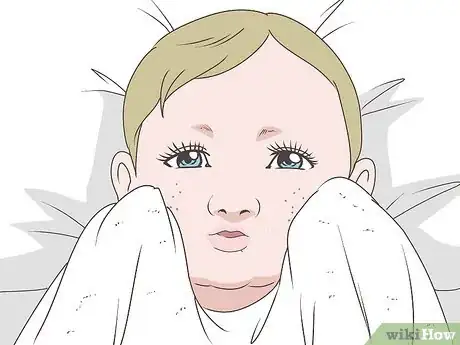
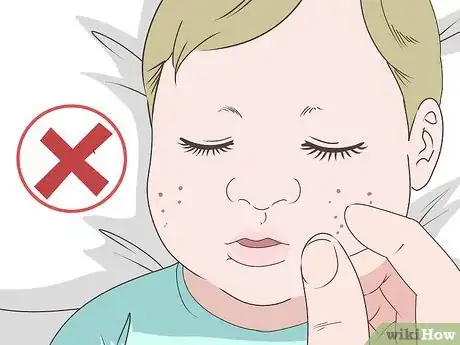
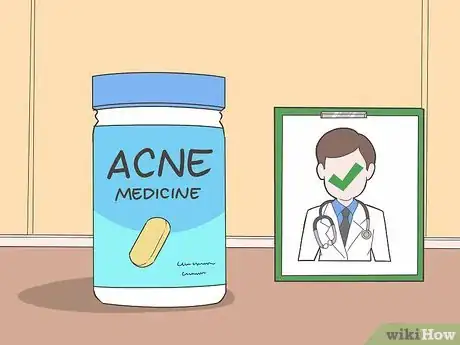
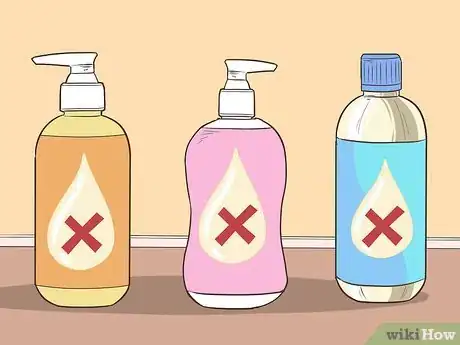
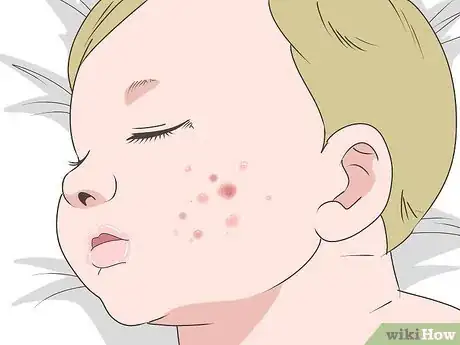
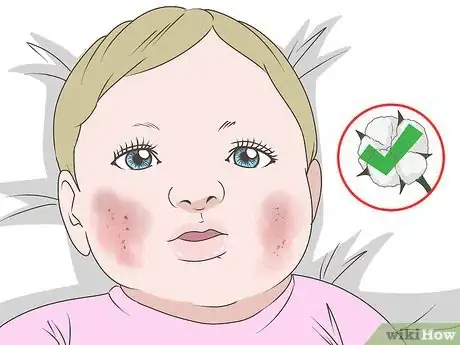
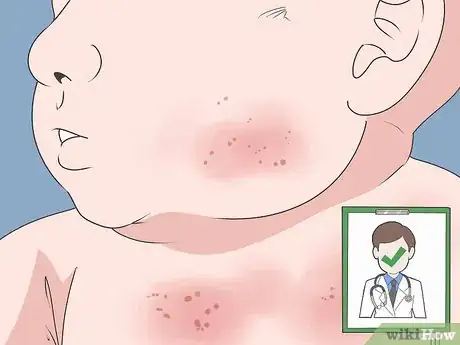
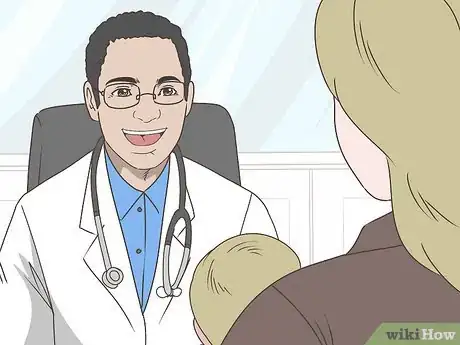
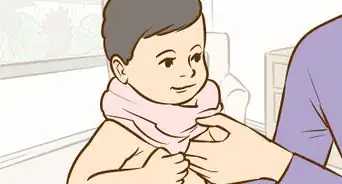
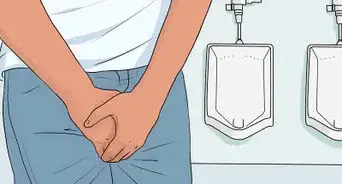
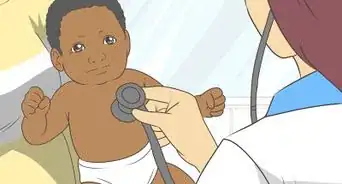
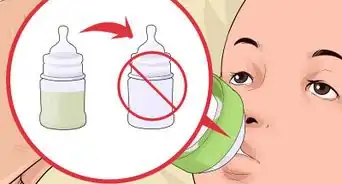
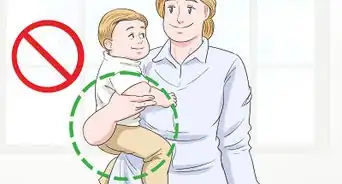
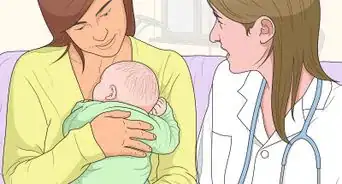
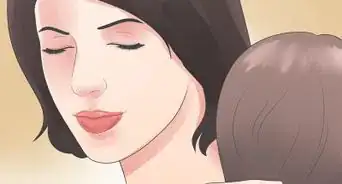

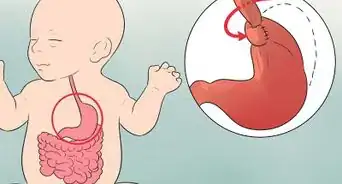
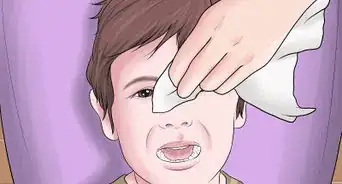
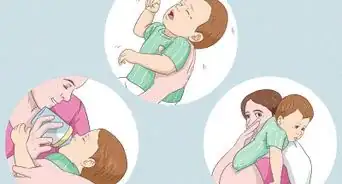
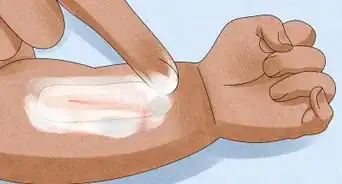
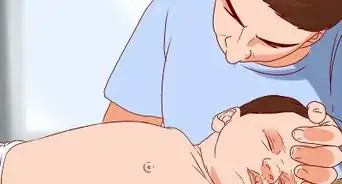









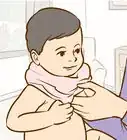
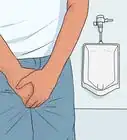
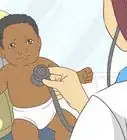
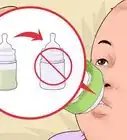



































Medical Disclaimer
The content of this article is not intended to be a substitute for professional medical advice, examination, diagnosis, or treatment. You should always contact your doctor or other qualified healthcare professional before starting, changing, or stopping any kind of health treatment.
Read More...